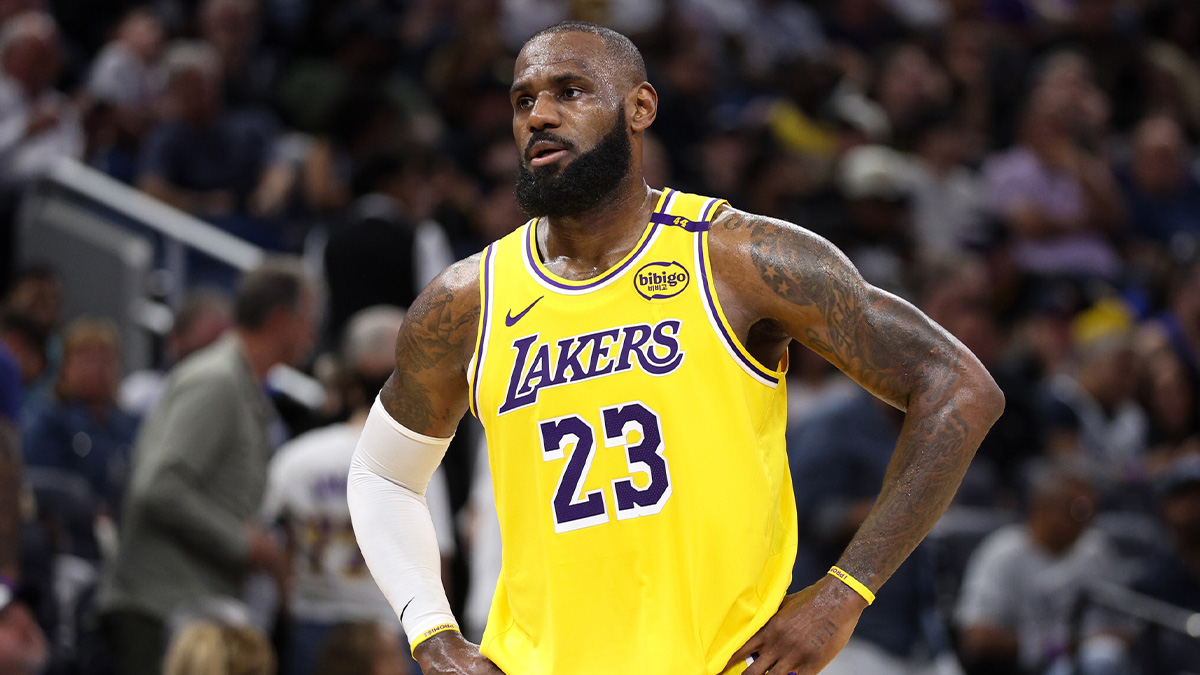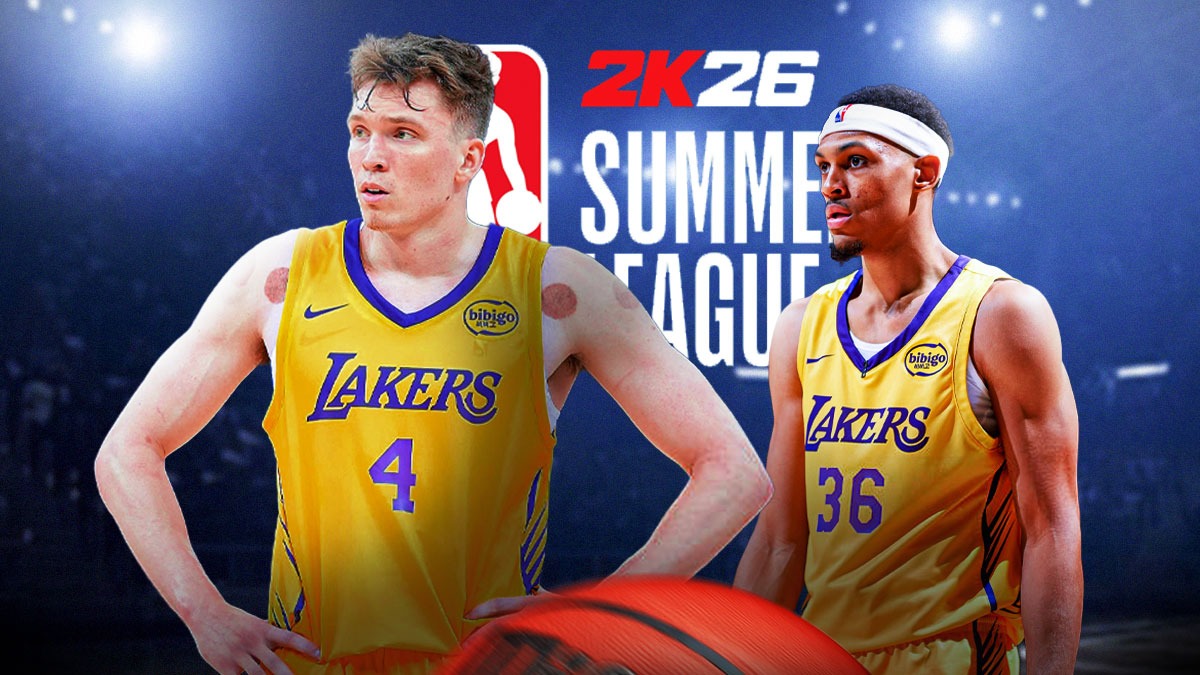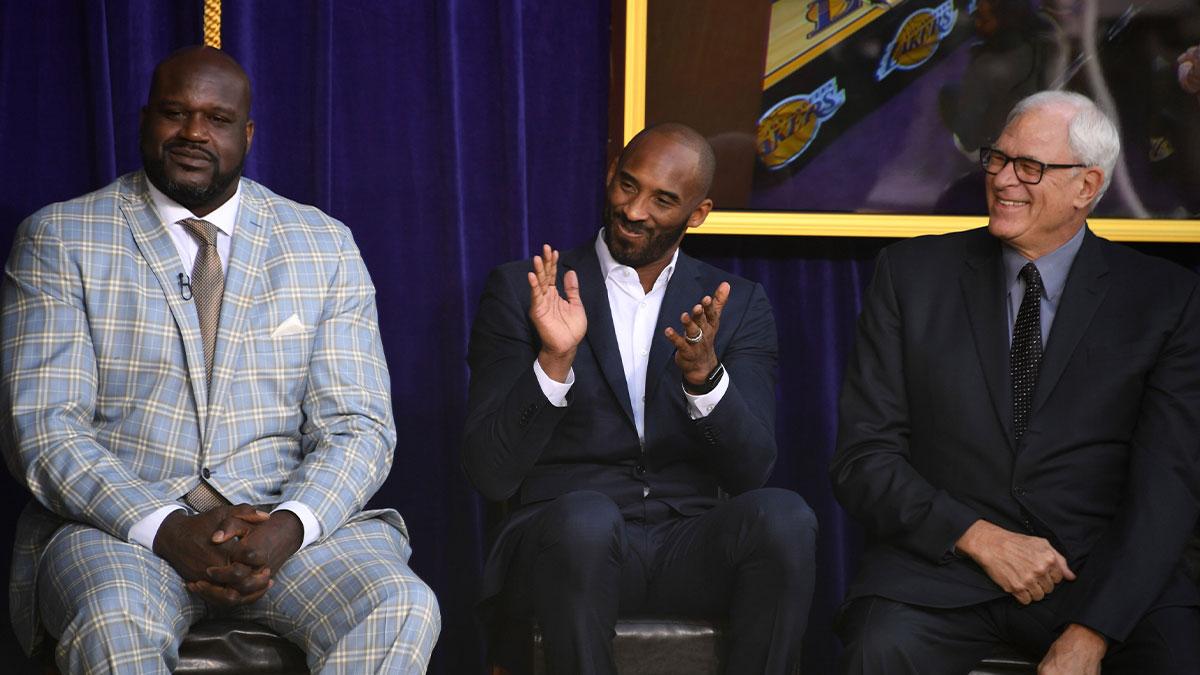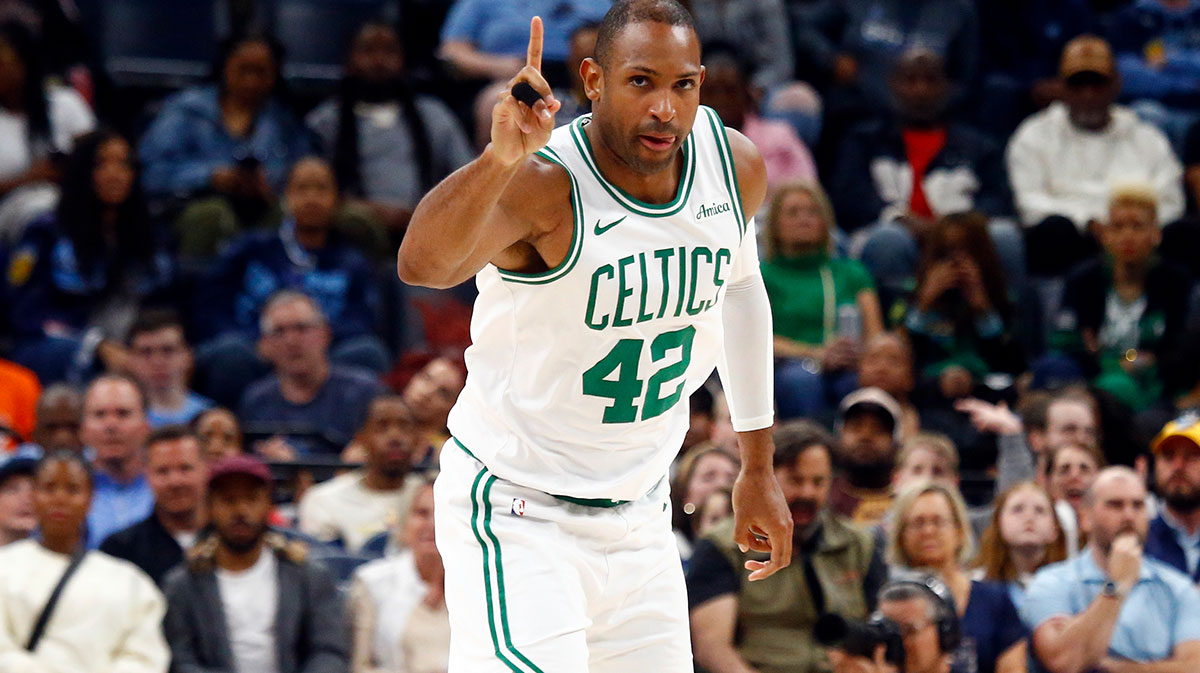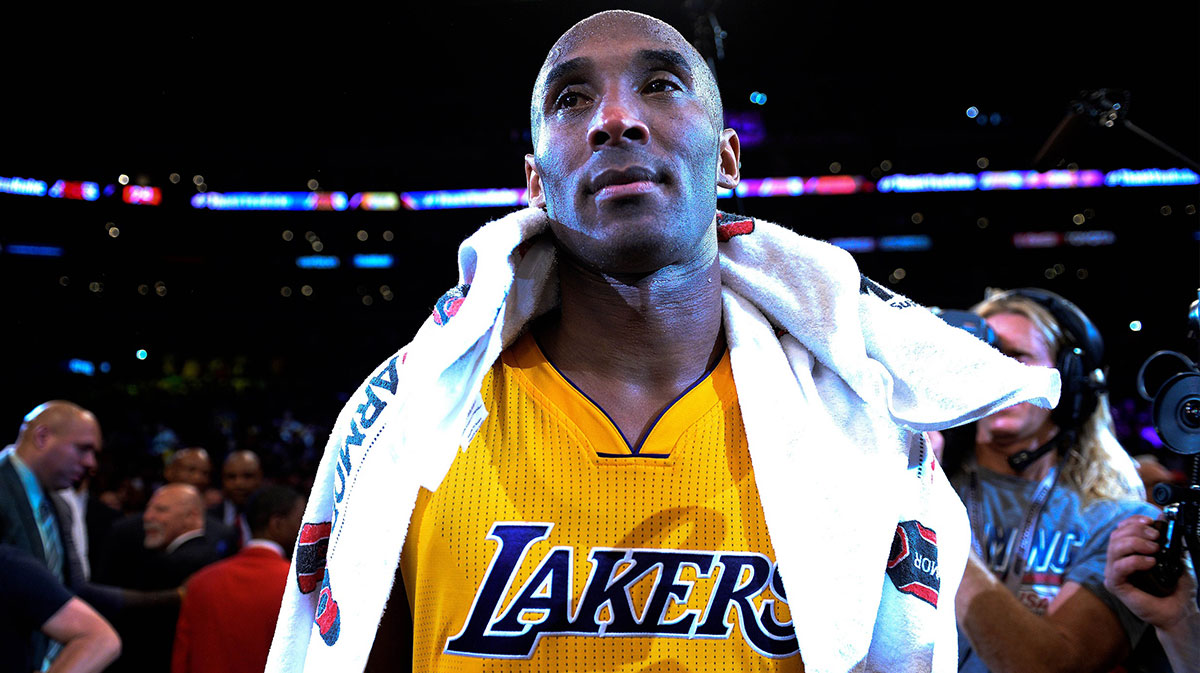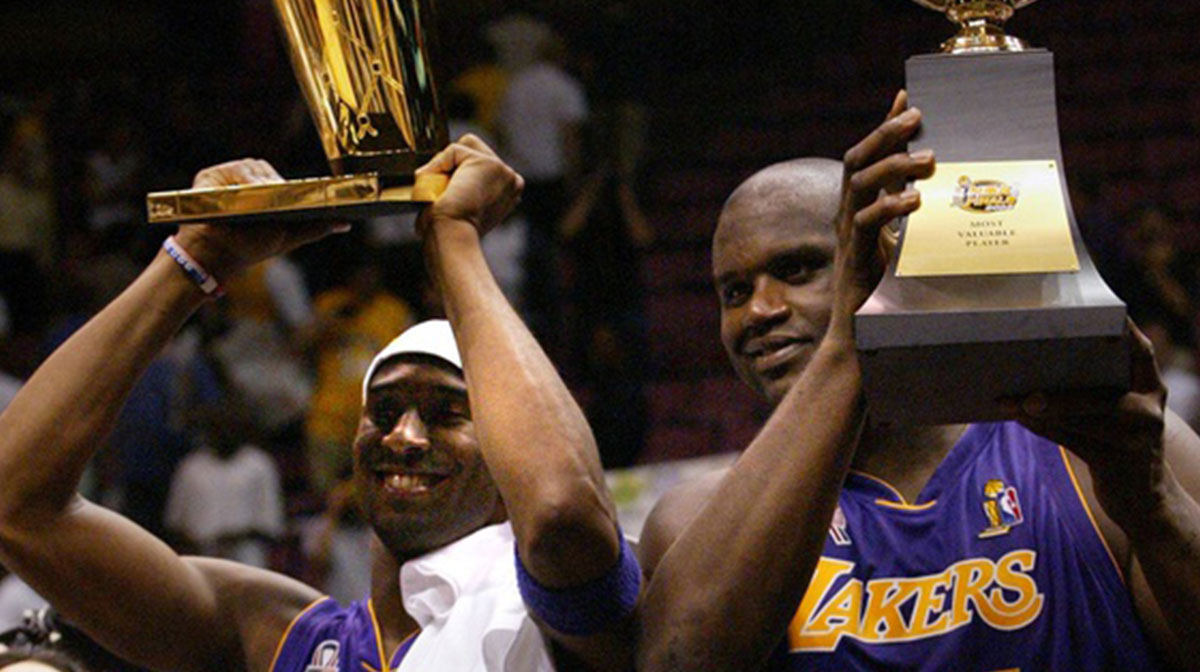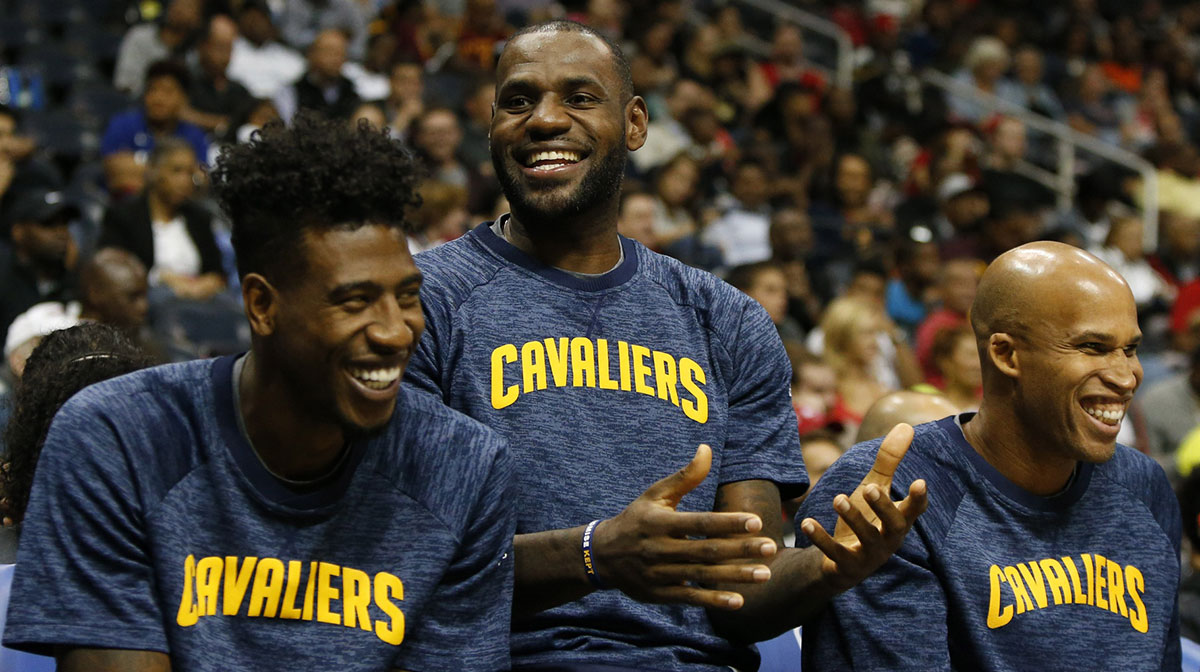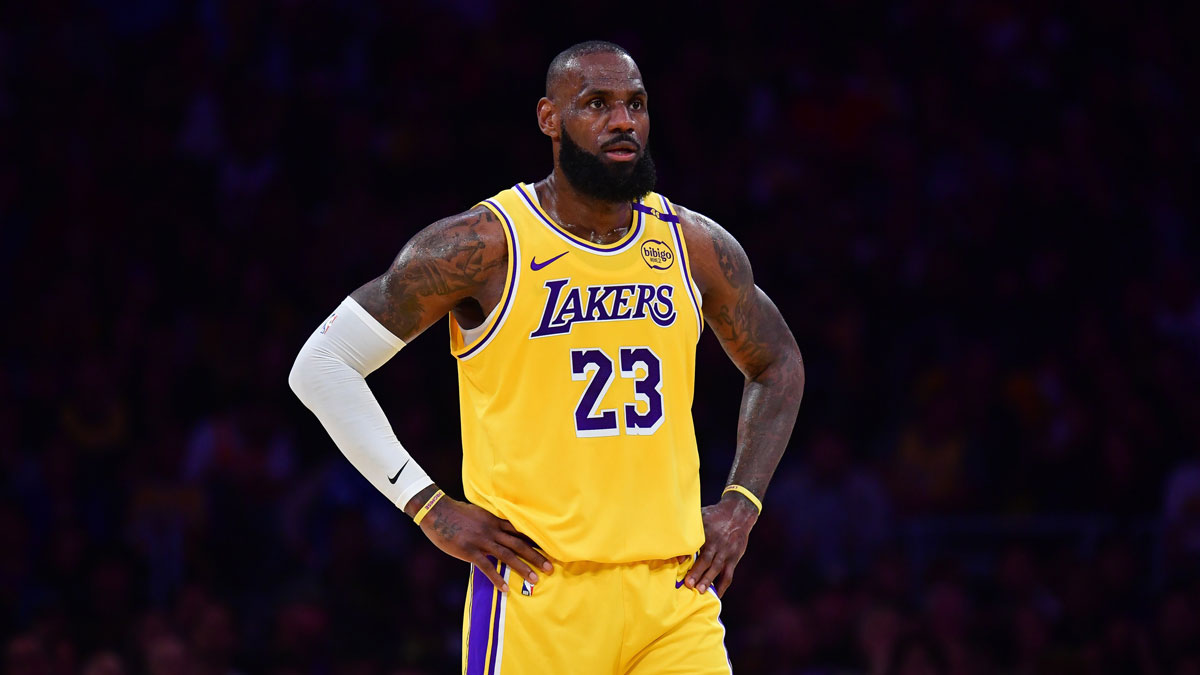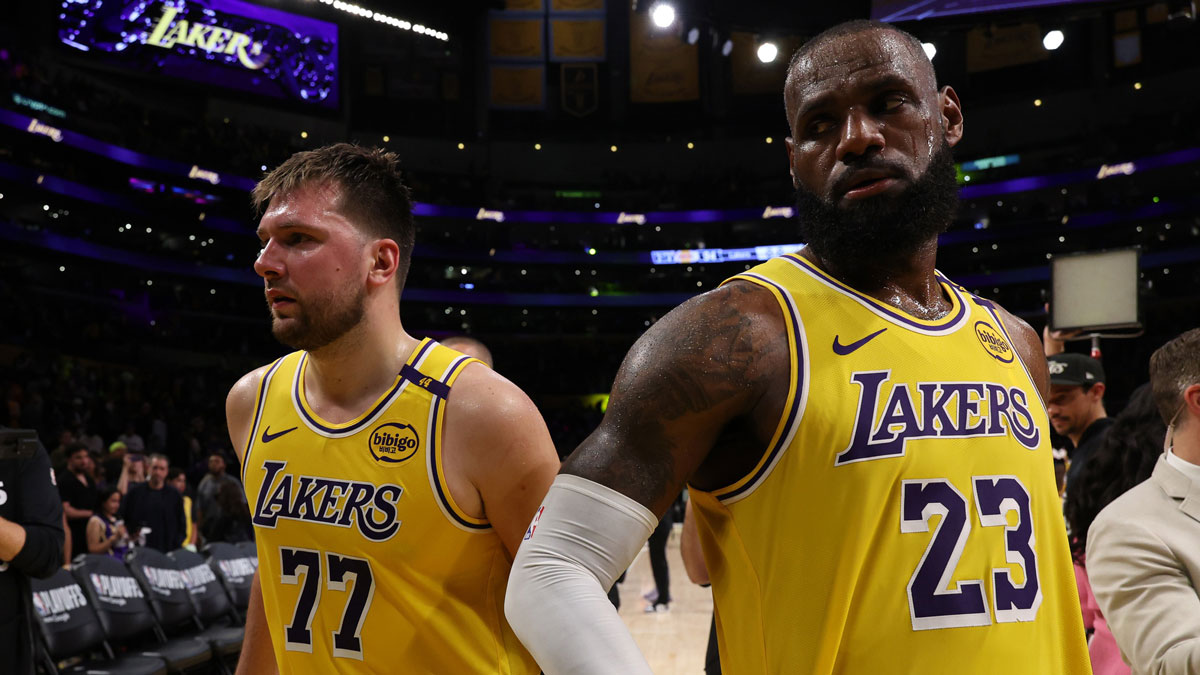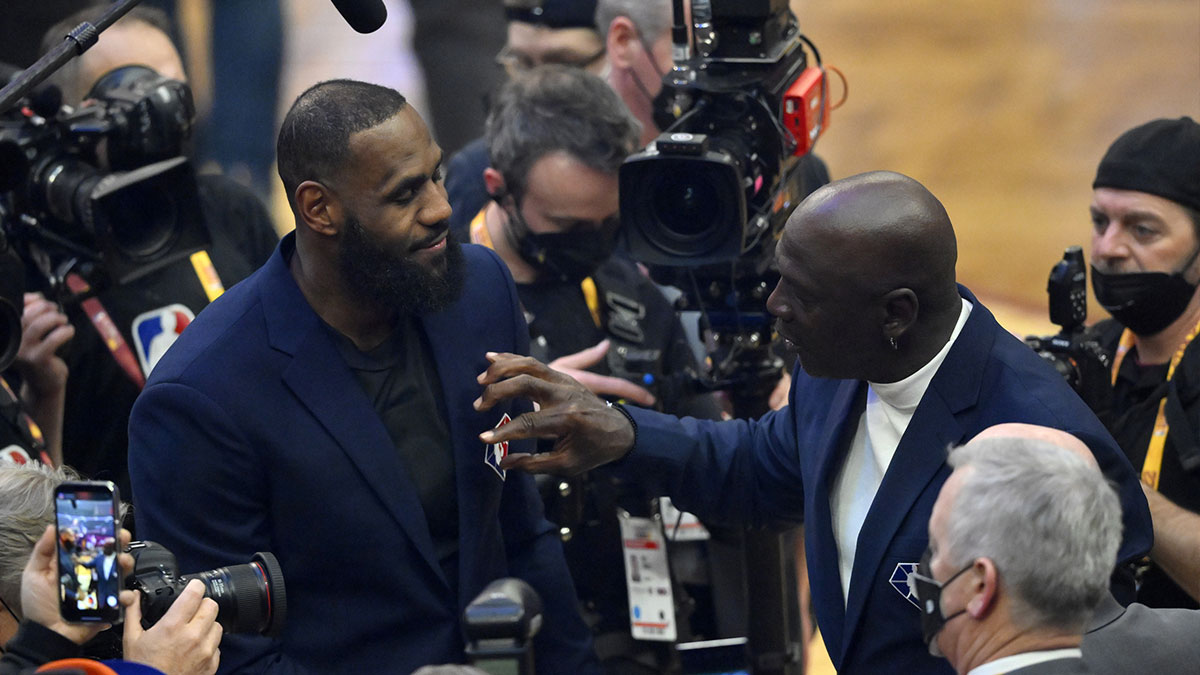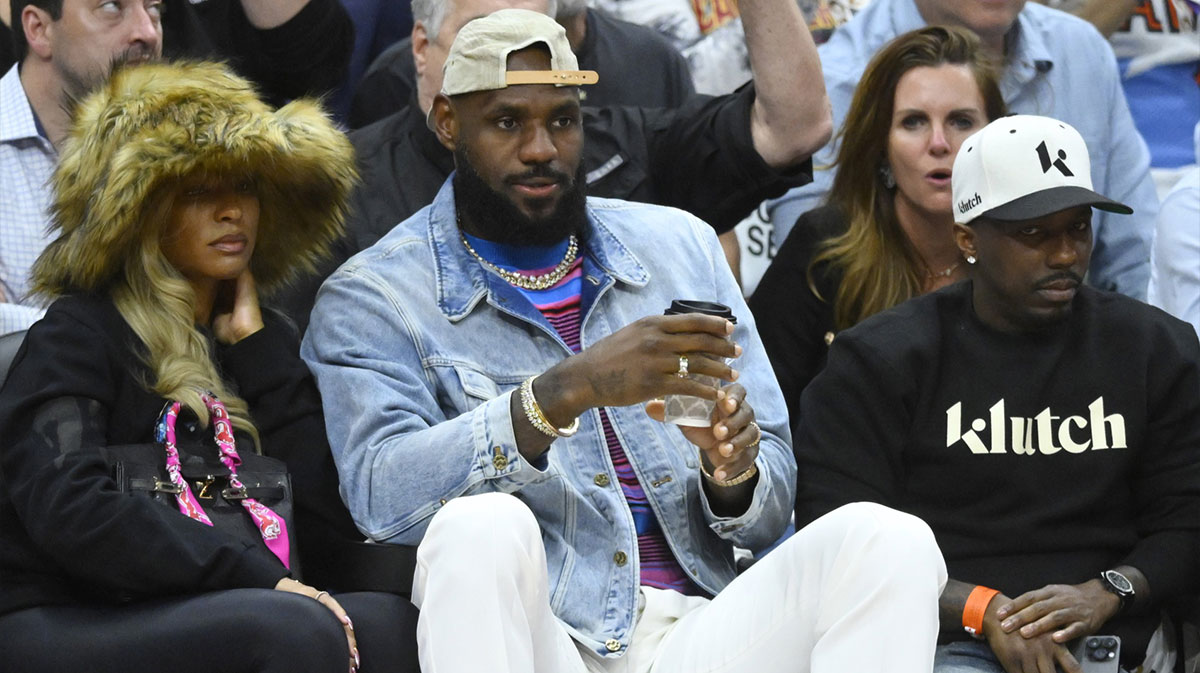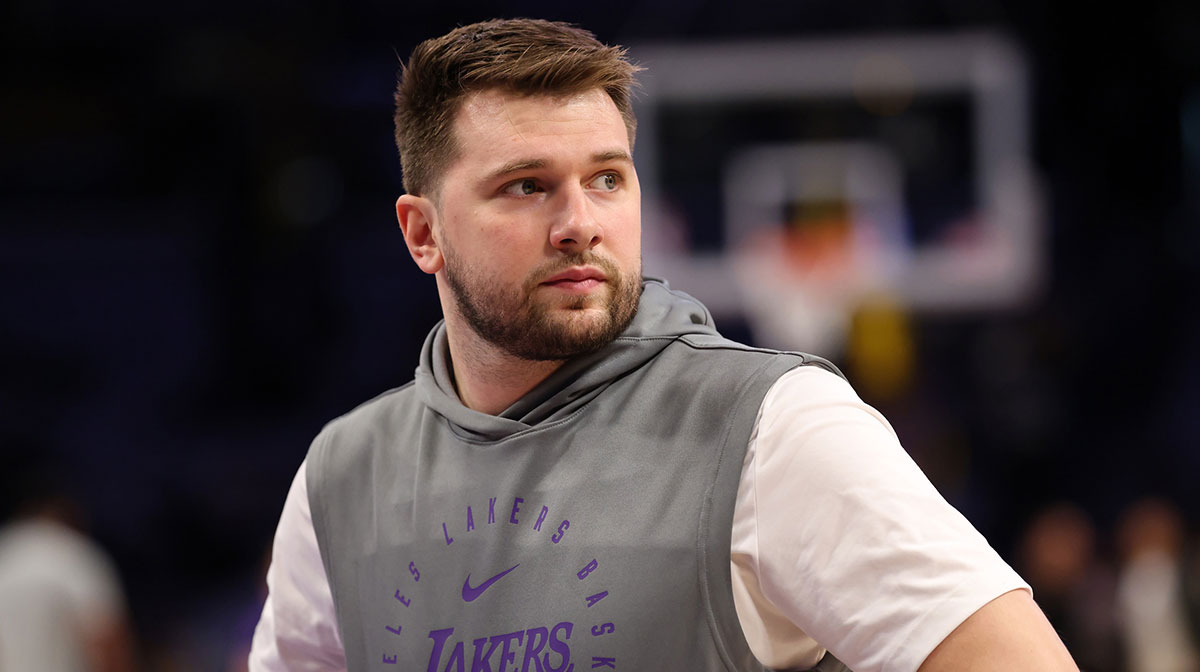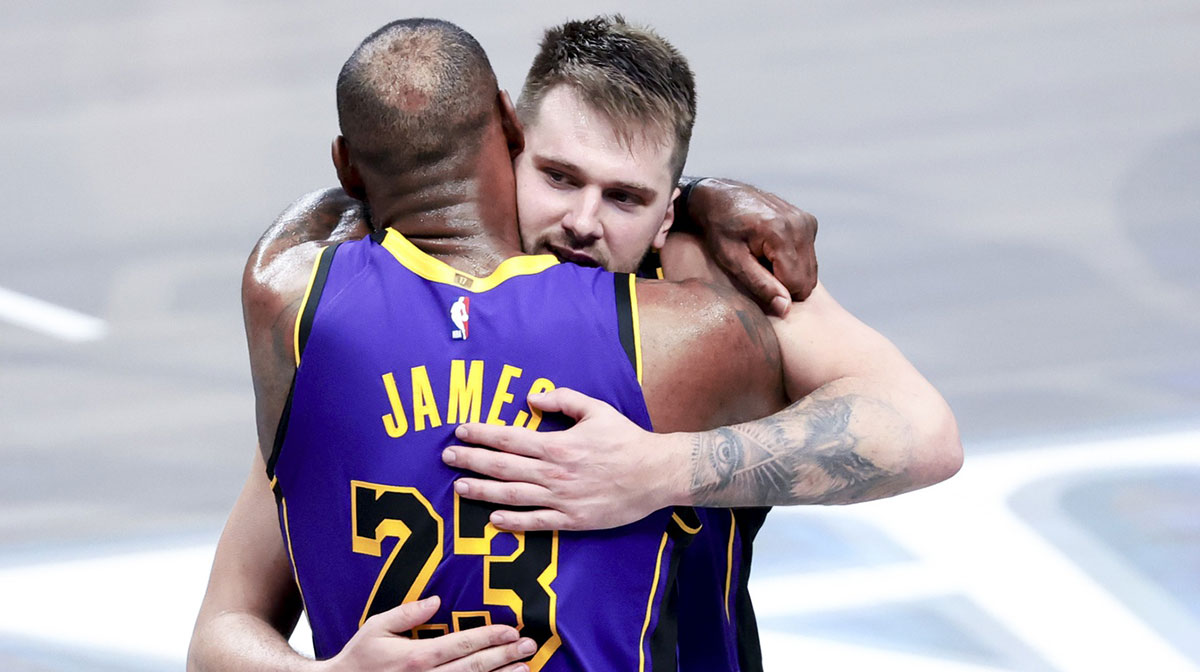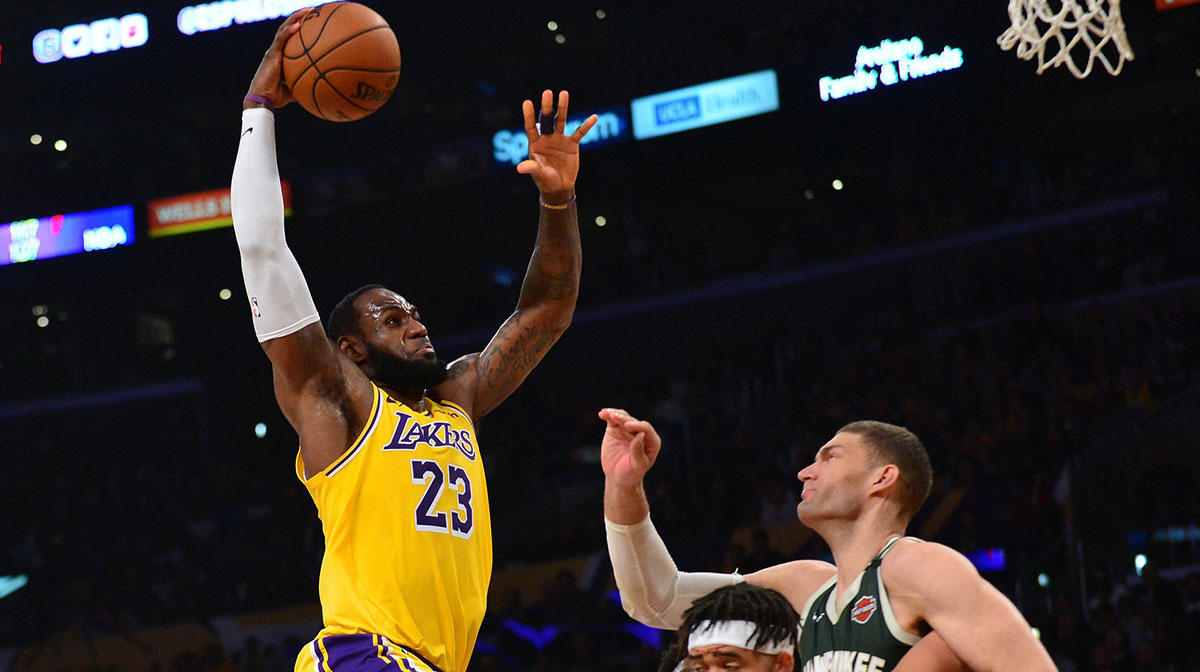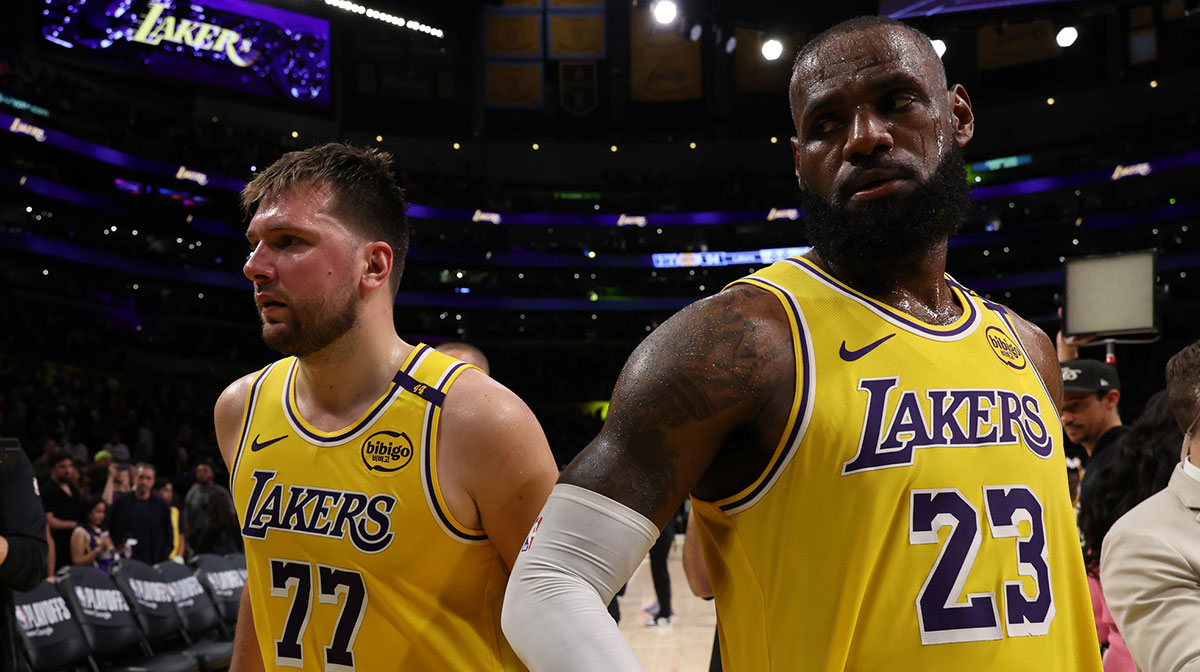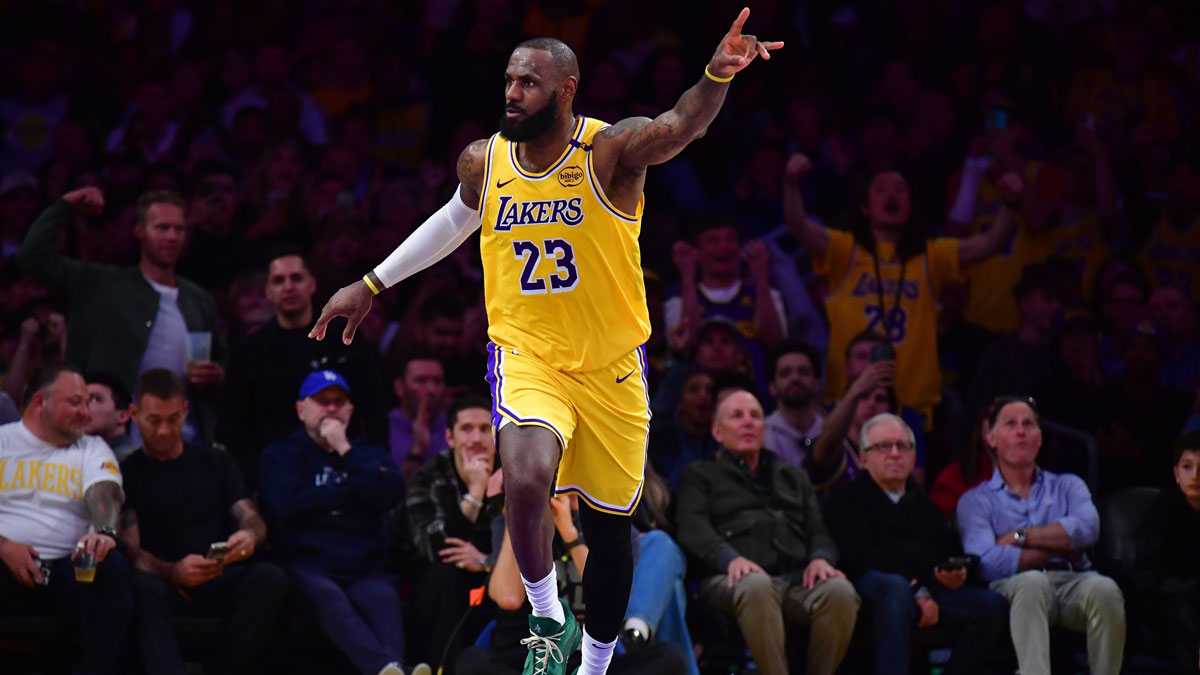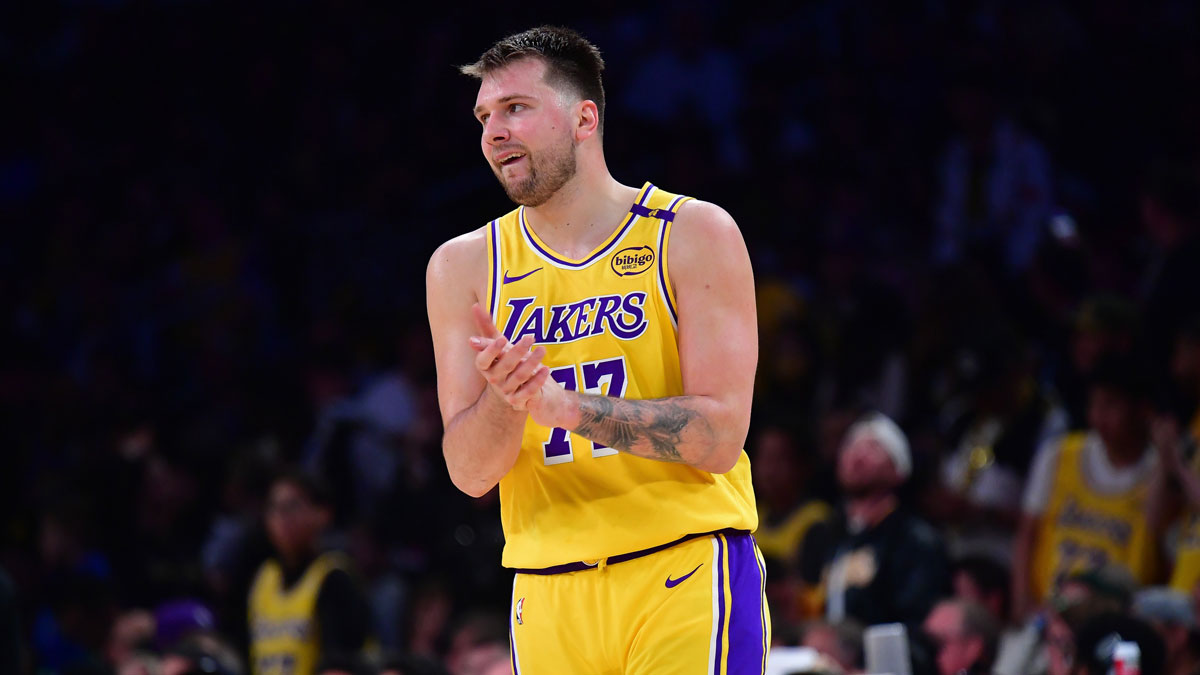For the most part, Darvin Ham's introduction was an encouraging day for the Los Angeles Lakers.
Ham's charismatic personality, natural gravitas, and basketball acumen were on full display. Lakers fans and, more importantly, players who tuned in surely came away excited about — in the coach's own words — the “Darvin Ham Era.”
Notably, Ham projected resolute belief in Russell Westbrook — both the state of his game and the prospect of coaching him.
“Don’t get it messed up: Russ is one of the best players our league has ever seen,” Ham stated. “And there’s still a ton left in that tank. I don’t know why people tend to try to write him off. I’m going to approach him like I do every player I’ve ever encountered.”
Ham shared insight into his dialogue with Westbrook and his expectations for the former MVP.
“Russ and I have had some really great one-on-one convos, and the biggest word that came out of those discussions was ‘sacrifice' … We have to start on the defensive end. In terms of what his role is going to be? I’m going to expect him to be the same tenacious, high-energy player that he’s been his entire career. A lot of it now may happen without the ball in his hand. Most of it now may happen on the defensive end.”
Later that day, on the LakeShow Podcast, Ham said he expects Westbrook to “set the tone” for the Lakers on defense.
Ham's confidence in Westbrook may be genuine. But, you'd be forgiven if the talk of “sacrifice” and defensive dedication causes your eyes to roll.
We heard this stuff last offseason. As the Lakers stars recruited other stars last July, Westbrook reportedly sold LeBron James and Anthony Davis on his willingness to adapt, embrace the in-between aspects of the game (cutting, screening, off-ball movement, etc.), and commit to defending. None of that happened. Westbrook turned on the coaching staff on the first day when he became possessive about his position, complained about his role throughout the season, and displayed putrid decision-making while his defense was as unfocused as ever.
Ham's comments triggered some serious déjà vu; yet, they're entirely predictable. For one thing: What else is he supposed to say? Secondly, I'm sure Westbrook is more open-minded to Ham than Vogel — with whom he never jelled — and pitched him passionately during their chats.
In the wake of Ham's words, as we watch two cohesive, two-way, unselfish squads duke it out in the NBA Finals, let's revisit the Lakers' coldest takes of last summer and fall — just to caution you before the offseason noise gets louder.
https://open.spotify.com/episode/39R9A4qBBb8J5jWRVKkzlu?si=bafcc488c6ac4371
9) The “Frank Vogel Effect”
Here was Rob Pelinka at his pre-training camp press conference — weeks after constructing a flawed roster bereft of defensive talent:
“The good news is that we have seen this ‘Coach Vogel Effect’ defensively with last year’s group, and the year before where his system and his discipline, and his teaching, and his focus on that side of the ball translated into success. … And of course part of that was personnel. But part of that is also system and teaching and accountability, and so we have a belief in this group, with some of the guys that were added like Kent Bazemore, Trevor Ariza, I could go down the list, that there is going to be a massive commitment to defense and rebounding and those cornerstone elements that are key to winning at a high level.”
“I don’t have any concerns about us being a very, very strong team defensively,” he added. “I believe in the group’s commitment and effort, and Coach’s teaching at that end that I think we’ll be successful as a defensive ball club.”
Welp. Pelinka placing unfair expectations on Vogel to automatically make everything work set the table for a season of organizational mistreatment towards the coach, defined by leaks of his firing until it happened 30 seconds after the season ended. The quote also represents an early indication of the disconnect between Vogel and the front office about the roster, which lingered throughout the year. Pelinka's belief in veterans like Bazemore and Ariza was misguided, too.
The Lakers finished 21st in defensive rating and their collective effort and focus on that end was consistently subpar.
8) Talen Horton Tucker can be a “dominant defensive player”
The Lakers were overly optimistic about the progress of Horton-Tucker — especially on D — after making him the team's fourth-highest paid player.
“I think Talen has got to establish himself as a dominant defensive player,” Pelinka said. “I think that is going to be the expectation on him. You guys know Frank Vogel prides himself on that end. He builds everything with his defense. There’s nothing Talen doesn’t have to keep him from being an elite player. We all know about his publicized incredible wingspan. Broad shoulders, quickness, athleticism. If he makes a choice to dominate you on the defensive end with his body and his length and his athleticism, that could be a nightmare for opponents.” Pelinka also shared his expectations for THT to make strides as a playmaker and shooter.
Vogel echoed those sentiments on the LakeShow Podcast:
“You talk about the defensive end and who’s gonna be that guy? He’s been challenged. This is a big growth season for him. He has the ability … He’s one of those guys that looking at KCP and Alex not being here, can you step up and fill into that role of guarding some of the other best players? … We feel like he’s gonna improve his 3-point shooting this year both with the work and the shot selection and he’s gonna have opportunities to really compete on the defensive end against some great players.”
“We’re grooming Talen to guard the other team’s best player. Sometimes that’s going to look really good and sometimes you’re going to struggle,” Vogel said on Nov. 20.
“The hope is that whatever perimeter player we’re playing each night,” Vogel said on Dec. 6. “That he can draw that assignment.”
Horton-Tucker's development was hindered by an ill-fitting backcourt, early-season thumb surgery, and a December bout with COVID-19. Yet, as the season wore on, it became apparent that the 21-year-old was not ready to be the player the Lakers envisioned. He posted career-worsts in defensive rating and three-point shooting and became a distressed asset that the Lakers couldn't trade at the deadline.
7) Lakers 360
“It was going to work,” Westbrook told ESPN about what he learned re: playing with LeBron after a few summer workouts.
#LakeShow 360° pic.twitter.com/BD7mOr9Ovg
— Los Angeles Lakers (@Lakers) September 29, 2021
LeBron, AD, and Russ played 21 games together and shared a -3.5 net rating when on the floor together. The Lakers went 11-10 in those games.
The moniker hasn't stuck.
6) Turnovers don't matter
“The turnover stuff is on me,” Westbrook said after another sloppy preseason contest. “But good thing, they don’t count. So, I could turn that bitch over 15 times, ain’t nobody going to do nothing about it.” A month later, Westbrook said he was “allowed” to commit turnovers and miss shots.
The Lakers went 0-6 in the preseason — a foreboding result, à la 2011-12. Russ averaged 3.8 giveaways per game in 2021-22, sixth-worst in hoops.
5) Westbrook can ease LeBron's load
On “Backstage Lakers“, Pelinka acknowledged the Lakers acquired Westbrook to relax the burden on LeBron.
“I think in kind of building the roster in the offseason, obviously we made a big trade for Russell Westbrook to get another playmaker… We knew that as LeBron journeyed towards Year 19 in the league and then Year 20, we couldn’t rely on him as the sole engine for our team, so we made that trade really wanting to dimensionalize the roster with a combination of versatility, guys that could shoot and also defenders.”
As Westbrook and the rest of the roster underwhelmed and struggled to stay healthy, LeBron averaged his most minutes (37.2) since 2016-17 and produced his highest usage rage (32.3) since 2009-10.
4) Ariza is the key puzzle piece
In the same “Backstage Lakers” scene, Pelinka said that 36-year-old Ariza, who missed the first two months of the season with ankle surgery, would be “critical in us being able analyze how the puzzle fits together once we have the whole team.” Vogel made similar statements as Ariza conducted his rehab.
Ariza was the type of player the Lakers sorely lacked — a versatile, long, 3-and-D wing. (Westbrook called Ariza 20 minutes after the trade to recruit him). But, even before his surgery, Ariza had shown signs of washed-ness over the past three seasons. The 18-year vet averaged 4.0 points, 3.4 rebounds, and shot 27% from three in 24 games and was waived in April.
3) The general talent assembled
“You could say this room has the greatest basketball talent assembled on a team in recent history,” Pelinka boasted.
“It was exciting helping put this team together this summer,” LeBron said at Media Day. “Understanding what I felt and we all felt was going to make us a title-contending team. … I watch enough basketball to know what I need to do to help the ball club depending on the acquisitions we make per year. So I'm very cerebral about what I need to do for our team to be as great as we can be and to be the counterpart to what Russ brings to the table. … I always figure it out.”
The confidence was understandable and likely honest. In hindsight, though, these soundbites represent laughably icy takes. Skeptics of the Westbrook trade were proven correct by his shaky fit, the Lakers roster was woefully imbalanced and lacked athleticism, depth, two-way players, and dependable shooting. The hoards of veteran minimum pickups — Ariza, Bazemore, Wayne Ellington, DeAndre Jordan, Dwight Howard, Avery Bradley, Rajon Rondo — were largely ineffective.
2) “Sacrifice”
“I think anytime you have three great players like this, there is an element of sacrifice required,” Vogel said during preseason. “We’ve all talked about that and are all-in on that. But these three guys can do it all. What I love about our group — Bron, AD, and Russ — is they’re all ‘make the right play’ players. It’s not just about scoring or being a one-dimensional player — they can all do it all. I’m most excited about seeing what the three of them on the court at the same time looks like.”
“LeBron out of anybody else, he knows what it takes to win a championship,” Westbrook noted. “My understanding of the commitment, understanding the sacrifices that we are both going to have to make, including myself and [Anthony Davis] as well for the betterment on the team, and finding ways to be able to win a championship. And that's the ultimate goal. So anything along the way we, we cannot get distracted, cannot get the deterred from our ultimate goal.”
“Sacrifice” was a ubiquitous term around the Lakers from free agency through the preseason. It turned out to be empty rhetoric. The Lakers never coalesced, played without competitive fire and grit, displayed uninspired body language and bench reactions as you'll see in the modern NBA, and multiple veterans lamented their roles after the season.
“It helps my preparation, makes me focus more on the things I need to focus on to get to a point where I can sit down and say, ‘I've accomplished everything I can accomplish in this league and now I'm lucky enough to be able to play alongside him,'” Russ said upon his arrival. “So I'm looking forward to that, looking forward to the things we can accomplish here together this season.”
In his scorched-earth exit interview press conference, Westbrook labeled the season a disappointment because he didn't average a triple-double.
1) Age is just a number
The Lakers compiled the oldest opening night roster in NBA history. Part of that is justifiable: Vets want to play with vets, and they may as well construct a roster that aligns with LeBron's timeline.
“We're a lot older, but we have a lot more wisdom,” AD said.
“The narrative about our age, I really do laugh at it,” LeBron said at Media Day. “Some of the memes and jokes are extremely funny, and some of it is just trying to get people to read tabloids. The game is won in between those four lines, it's not won in the newspaper, or sports talk shows. If we come out and put the time in and put the work in, we'll make our own narrative. We have a bunch of guys who have been in this league for quite a while, and know what it takes to win, and we're in the business of winning.”
Of course, LeBron fired off this epic tweet, as well:
— Freezing Cold Takes (@OldTakesExposed) February 28, 2022
Unfortunately, the 2021-22 Lakers sorely lacked enthusiasm, speed, and youth, and players willing to prioritize scrappiness and intangibles. They suffered myriad injuries. The infusion of energy provided by Malik Monk, Austin Reaves, and Stanley Johnson was glaring. Fittingly, their most fun win of the season may come in Game 82: an energized overtime win in Denver led by Reaves (31/16/10), Monk (41 points), Wenyen Gabriel (14 and 10), and Mac McClung (ended the game with a double-reverse slam).
The lesson is all this? Words are just that: words. The basketball is what counts.

